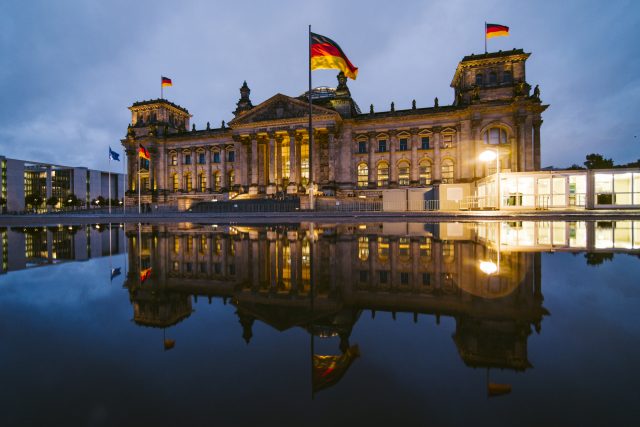This website uses cookies so that we can provide you with the best user experience possible. Cookie information is stored in your browser and performs functions such as recognising you when you return to our website and helping our team to understand which sections of the website you find most interesting and useful.
Germany calls for organic certification to be allowed for de-alcoholised wine
The German government has called on the European Commission to permit organically-produced de-alcoholised wines to use organic certification.

Cem Özdemir, Germany’s Federal Minister of Food and Agriculture, said that the push is in response to the consumer shift toward non-alcoholic wines: “For me, a good glass of wine is also a part of the quality of life. More and more people want to enjoy wine without alcohol every now and then and that’s certainly not bad news. If you want to drink non-alcoholic wine, you should also be able to do so in organic quality.”
According to data from the World Health Organisation (WHO), Germany has the highest alcohol consumption in Europe, with the average adult German consuming 10.6 litres of pure alcohol per annum in 2020. However, this figure is a whole litre lower than it was 2010, suggesting that the German thirst for alcoholic drinks may be shrinking. Indeed, according to figures recently released by the Verband Deutscher Sektkellereien (VDS), which represents 95% of Germany’s sparkling wine producers, in 2023 Germans purchased 18 million bottles of non-alcoholic sekt, a 9.7% increase on 2022’s level.
“However, dealcoholization is not yet permitted in the organic regulations – you can’t actually explain that to anyone! We should change that quickly,” Özdemir argued. “I am therefore campaigning in Brussels and with colleagues in the member states for a contemporary and targeted adaptation of the organic regulation. This step opens the door to an additional growing market, is in the spirit of German viticulture, and thus strengthens its sustainably.”
Brussels responds
A European Commission source clarified the rules surrounding the issue to the drinks business: “Organic rules related to wine are very specific and are not the same as for processed food; the list of authorised and prohibited oenological practices are listed in Regulation (EU) 2018/848 and this list does not currently authorise the use of vacuum distillation. Therefore, vacuum distillation must be authorised for the de-alcoholisation of organic wine, in order to be able to label the final product with the name ‘de-alcoholised organic wine’.”
Vacuum distillation is a method involving heating a wine under vacuum to vaporise the alcohol, thus removing it.
However, the spokesperson suggested that a change to the current rules could be on the way very soon: “In order to address the issue, upon a request from Germany in 2023, the Commission services have started to evaluate the possibility to authorise vacuum distillation for the organic production of the products of the wine sector.”
“After the technical advice of the EGTOP (Expert Group for Technical Advice on Organic Production) and the consultation of the experts designated by each Member States in the expert group on organic production, the Commission might propose this year a delegated act, in accordance with Article 18(2), point (a), and Article 54 of Regulation (EU) 2018/848 on organic production, to amend the EU Organic Regulation and authorise such practice,” they continued. “The report from the EGTOP is expected to be finalised by the end of March. This possible act, if adopted by the Commission, will then be subject to scrutiny by the European Parliament and the Council.”
However, there is still some way to go yet.
“Please note that at this stage,” the spokesperson explained, “discussions are still on-going and we cannot presume what the position of each Member State will be on the possibility to have organic de-alcoholised wine by using vacuum distillation.”
The issue of how to view alcohol content in wine has been a thorny one for Europe in recent years. Many member states are historic wine growing countries where wine (and its alcoholic content) is part of the culture. One particularly contentious issue has been Ireland’s introduction of health information on the labels of alcoholic drinks, with Italian producers especially up in arms over the move. This issue, and that of how to capitalise on the no- and low-alcohol wine trend, were discussed at last year’s Delle Venezie DOC International Forum.

